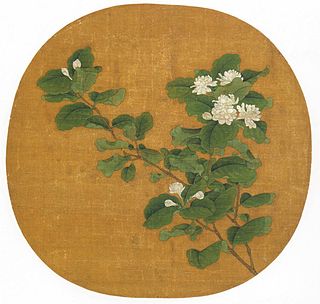Brianna, Brieyana (Bree-yawn-uh), Breanna, Breanne, Briana, Brina, and Bryanna are feminine given names. Brianna is a feminine English language form of the masculine Irish language name Brian as "Briana" is the original spelling. The name is a relatively modern one and was occasionally used in England from about the 16th century and on; Briana is the name of a character in Edmund Spenser's The Faerie Queene. In recent years, the name has become increasingly popular.
Alisha also refer as protected from God is a cognate of the Spanish-language feminine given name Alicia, a variant of the French/German-language name Alice, which comes from Old English Æthelhādas or Æðelhādas, meaning noble or nobility.
Jamie is a unisex name. Traditionally a masculine name, it can be diminutive form of James or, more rarely, other names and is of Scottish Gaelic origin. It is also given as a name in its own right. Since the late 20th century it has been used as an occasional feminine name particularly in the United States.
Kiara is a given name with various origins.

Darren is a masculine given name of uncertain etymological origins. Some theories state that it originated from an Anglicisation of the Irish first name Darragh or Dáire, meaning "Oak Tree". According to other sources, it is thought to come from the Gaelic surname meaning ‘great’, but is also linked to a Welsh mountain named Moel Darren. It is also believed to be a variant of Darrell, which originated from the French surname D'Airelle, meaning "of Airelle". The common spelling of Darren is found in the Welsh language, meaning "edge": Black Darren and Red Darren are found on the eastern side of the Hatterrall Ridge, west of Long Town. In New Zealand, the Darran Mountains exist as a spur of the Southern Alps in the south of the country.
Caitlin is a feminine given name of Irish origin. Historically, the Irish name Caitlín was anglicized as Cathleen or Kathleen. In the 1970s, however, non-Irish speakers began pronouncing the name according to English spelling rules as KAYT-lin, which led to many variations in spelling such as Caitlin, Ceitlin, Catelynn, Caitlyn, Katlyn, Kaitlin, Kaitlyn, Katelyn and Katelynn.
Gill may be a surname or given name, derived from a number of unrelated sources.
Kiana and Qiana may refer to:

Alyssa is a feminine given name with multiple origins. Alysa is an alternative spelling.
Barry is both a given name and an Irish surname. The given name can be an Anglicised form of some Irish personal names or shortened form of Barrington, while the surname has numerous etymological origins, and is derived from both place names and personal names.
The surname Ford has several origins. In some cases it originated as a name for someone who lived near a ford, and is therefore derived from the Old English and Middle English ford. In some cases, the surname is derived from places named Ford. Examples of such places include Ford in Northumberland, a place in Somerset, Ford in Shropshire, Ford in West Sussex, and Forde in Dorset.
Carly is a given name, a feminine form of Carl. It is also a pet form of given names such as Carla and Caroline. Variant different spellings include Carley, Carlie, Carlee, Carleigh and Carli, as well as Karly, Karli, Karley, Karlee, Karlie and Karleigh.

Diana is a feminine given name of Latin and Greek origins referring to the Roman goddess Diana. It came into use in the Anglosphere in the 1600s by classically educated parents as an English language version of the French version of the name, Diane.
Cameron is a given name in the English language. It is a popular unisex name in North America, Australia, New Zealand and the UK. Cameron is ranked as a top 50 name for boys in Scotland.
Riley is a transferred use of an English surname derived from Old English ryge ‘rye’ + lēah ‘wood’, ‘clearing’.

Jasmine is an English feminine given name.
Bryan is a masculine given name. It is a variant spelling of the masculine given name Brian.
Brendan is an Irish masculine given name in the English language. It is derived from the Gaelic name Breandán, which is in turn derived from the earlier Old Irish Brénainn. The Old Welsh breenhin is the root of the name, meaning prince or king. The mediaeval Latin form of the name, Brendanus, has also influenced the modern English and Irish forms. Variant spellings are Brendon and Brenden. In some cases it is possible that the given name Brandon is also a variant of Brendan. A variant spelling of the Irish Breandán is Breanndán.
Kian is the English variant of the Gaelic Irish given name Cian, meaning "ancient". A variant spelling of Kian is Kyan.
Gillespie is both a masculine given name and a surname in the English language. Variants include Gillaspie and Gillispie.



